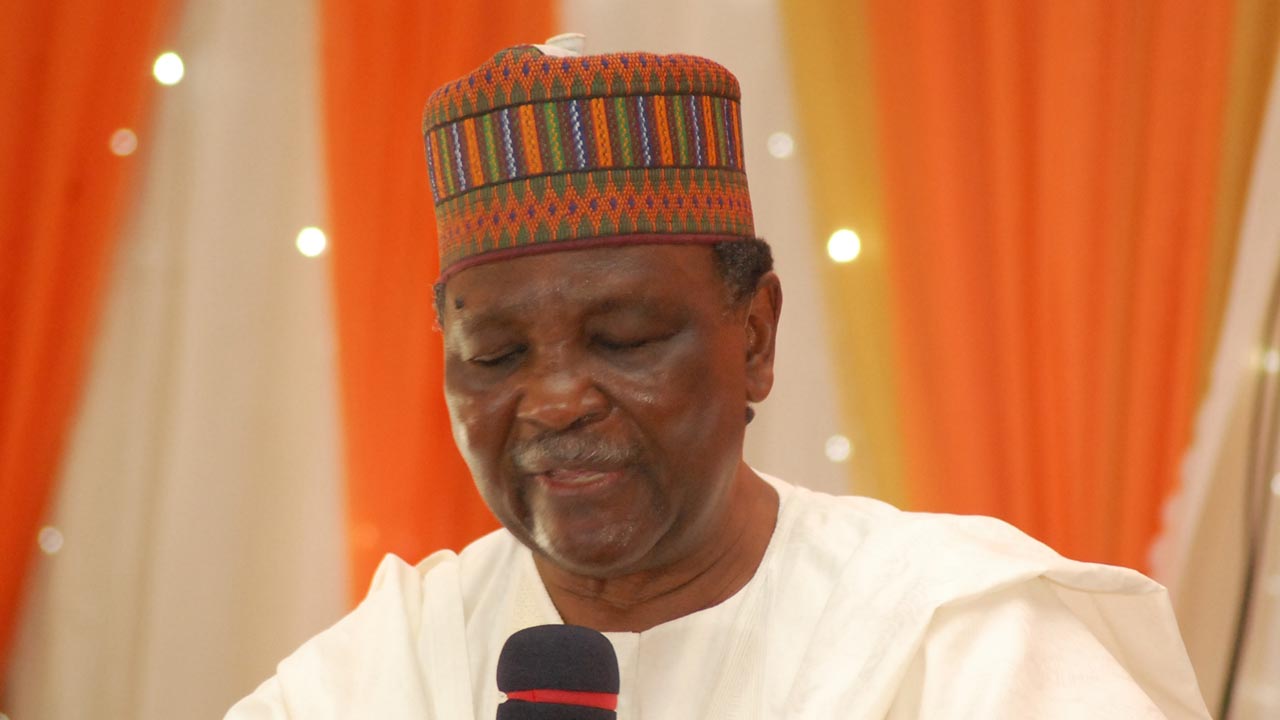
Yesterday marked the 53rd anniversary when General Yakubu Gowon, (then a lanky lieutenant colonel), created the 12 states that replaced the original four regions of the Nigerian federation. Today we have 36 states. Only Lagos State remains in its original form as was created by General Gowon. All other states have undergone tremendous splitting which may not necessarily have been good for Nigeria. However, the state system remains dominant to the idea of Nigerian federalism. Gowon created the state to forestall the Civil War. Colonel Chukwuemeka Odumegwu-Ojukwu, the Governor of the Eastern Region, nonetheless declared the independence of the region and named it Biafra.
Gowon advisers for the creation of states were the top civil servants, especially the federal permanent secretaries, he inherited from the regime of General Johnson Aguiyi-Ironsi. Gowon also inherited three military governors; the Governor of the North, Lieutenenat Colonel Hassan Usman Katsina, Mid-West, Lt Colonel David Ejoor and the Govenror of the East, Lt Colonel Ojukwu. The Governor of the West, Lt Colonel Adekunle Fajuyi, had been killed with Ironsi, the Supreme Commander, during the coup of July 29, 1966. It was that bloody coup that brought the relatively unknown Gowon to power.
When he announced the creation of new states, Gowon decided to retain Ironsi’s military governors in their posts. He had earlier appointed Colonel Adeyinka Adebayo as the new military Governor of the West to replace the slain Colonel Adekunle Fajuyi. A part of the West had been merged with the Lagos Federal Capital Territory, FCT, to form the new Lagos State. Ojukwu was retained as the Governor of the new East Central State (an appointment he rejected immediately) and Colonel David Ejoor remained the Governor of the Mid-West. Colonel Hassan Usman Katsina was removed as Governor of the Northern Region and posted to the Defence Headquarters in Lagos. The old North was split into six states.
While he was in prison in Calabar, Chief Obafemi Awolowo, the Leader of Opposition during the First Republic, had completed his book, Thoughts on the Nigerian Constitution. He sent the manuscript to General Ironsi with a petition asking that he and his supporters be released unconditionally. In his book, Awolowo had advocated for the creation of a Nigerian Federation of more regions based on ethnic affinity and economic viability. When Gowon came to power, he released Awolowo and his men from prisons but ignored Awolowo’s book.
Awo’s proposition was that every major ethnic group, like the Yoruba, the Igbo and the Hausa (and their Fulani rulers) be given their own states. The minority nationalities should be grouped to form states based on ethnic affinity and economic viability. With the coming of the oil boom since the 1970s, the military completely forgot the reasons for the creation of states. More states were created to satisfy the ego and power of politicians and military figures. Now the chickens have come home to roost. Today we have 36 states, but no one talks of economic viability or ethnic affinity.
The result for the multiplication of states is that in Nigeria today, government exist for its own sake. Much of the resources of Nigeria are now used to service the structure of the state. Our country that had only four governors up to 1967, now has 36. We now have to pay for 37 parliaments instead of five. In 1966, the four regions had less than 50 divisions (local governments). Today, they have been replaced with 774 local governments with full time chairmen and counsellors.
During the First Republic, parliamentarians were doing their jobs as part time. When Chief Adekunle Ajasin was a member of the Federal House of Representatives, he was also the Principal of Imade College, Owo. When Professor Samuel Aluko was Chairman of Ekiti Divisional Council (now Ekiti State), he was also a teacher at the University of Ibadan.
It would not be entirely correct to say that the military were the only one to blame for the proliferation of states. Immediately after the Civil War, many politicians kept themselves busy by stirring-up agitations for new states. The agitations gained momentum after Gowon was toppled and he was replaced by General Murtala Muhammed in 1975. These agitations and demands were to be tackled by the Justice Ayo Irikefe Panel set up by General Muhammed.
In the old Western State, State Creation Movements were also set up by politicians. In the beginning, the followers of Chief Awolowo were not involved with these movements because they knew their leader was opposed to further balkanization. The group finally met at the Ikenne country home of Awolowo where an overwhelming majority voted for the creation of new states.
“There is no scientific reason why one ethnic group should have more than one state,” Awolowo admonished them. “The position you are taking today ran counter to the position we have consistently taken since the 1940s that the Yoruba people of Nigeria should live under only one regional or state government.” He added: “That is what should happen to the Ibos and the Hausas!”
Thank you our leader, they told him, but we want more states!!
Today, the one region over which Awolowo presided, now has eight states: Lagos, Ogun, Oyo, Osun, Ondo, Ekiti, Edo and Delta. With the cost and ineffectiveness, it would be proper for Nigerians to think of the future of the state system. The COVID-19 pandemic is bringing to us the precarious nature of our mono-economy based on crude oil. We now need to think of what the late Dr Olusegun Agagu, former Governor of Ondo State, use to call “Nigeria without oil.” It sounded futuristic then. Now the future is here. It is time to think of merging the states to create more viable entities that can survive the coming bad weather. This is not an assignment for President Muhammadu Buhari alone. It is more of an assignment for the governors, the legislators and all those fat cats in the power loops. As we are now, we are actually travelling into the wrong future. We need to make a U-turn. Fast!
In the old West, the region was relatively prosperous because there was no easy money. The monied-class had visible means of income. The few multi-millionaires like Chief T. A Oni, Chief Lawrence Omole, Isaac Ajanaku, Chief Adekoya Okupe (Agbonmagbe), S.B. Bakare, Adeola Odutola and Samuel Shonibare; all have visible businesses. One of those who followed in their footsteps was Chief Adebayo Adetunji, the Ibadan industrialist who died last week at 88.
Adetunji was a humane and wealthy humanist who grew up in challenging circumstances, having lost his mother when he was just two-years old. With Spartan discipline and innate business acumen, he came to fortune early. He had a large capacity for empathy and contributed to many worthy and philanthropic causes across Nigeria. He was the principal promoter of the defunct Trans-International Bank, TIB, and served for many years as a director of Union Bank Plc. He created and served many other institutions. He would be sorely missed.
CORRIGENDUM
Our article last week, Amotekun of the North, discussed the suggestion that the Amotekun security initiative of the Yoruba South West could be extended to cover the neighbouring states of Kogi and Kwara. Our friend, Alhaji Lai Mohammed, the Honourable Minister of Information, was quoted to have made such a suggestion. We have since confirmed that he never did. The error is regretted.






